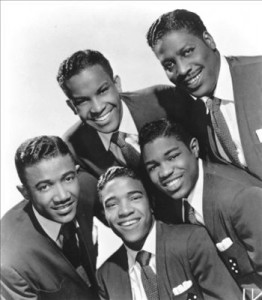This is the 200th installment of my Soul Serenade column for Popdose. I tried and tried to think of some clever way to celebrate the occasion, but in the end I decided that a gimmick is not what I need. Besides, my four year anniversary (I don’t think I’ve missed a week) of writing the column is just a few weeks away. Maybe I can think up some schtick for that one.
I’m the old guy at Popdose, and I’ve always appreciated the fact that the team here, led by Jeff Giles, puts up with me and allows me to play kowtow to my whimsy. Despite the ongoing popularity of soul music, in the Popdose milieu what I’m writing has to be considered niche at best. And yet I’m gratified by the responses I get to this column every week. My column will never go viral, but I’m happier to have a core group of loyal readers. Thank you.
Finally I decided that what I would do this week is what I’ve always done; select a great song from the endless soul catalog, and learn more about it so that I can tell you what I’ve learned. In this case, it’s one of the first songs that I ever remember hearing, and certainly one that helped to establish my love of music, which in turn led me to where I am today — sitting in the Newport, RI Public Library, writing this column.
The Jive Five got together in Brooklyn in the late ’50s. The original group include Eugene Pitt as the lead singer, along with tenors Jerome Hanna and Richard Harris, baritone Billy Prophet, and bass singer Norman Johnson. They didn’t waste any time establishing themselves as a legendary group. Their very first single for Beltone Records, “My True Story,” was a smash in 1961. It reached #1 on the R&B chart, and #3 on the Pop chart and has remained one of the most popular songs on radio and oldies anthologies to this day.
With a big hit in their pocket, the Jive Five had to face the prospect of trying to top themselves. The challenge was exacerbated when Hanna passed away in 1962. He was replaced by Andre Coles, and the group was reorganized to included Beatrice Best and Casey Spencer. In 1962 they had an R&B hit with “These Golden Rings,” and hit the Pop chart with “What Time Is It.” They left Beltone and moved to United Artists where they had a 1965 hit with “I’m Happy Man.”
Five years later the Jive Five signed with Decca Records, and someone thought it was a good idea to rename them the Jyve Fyve. They had a minor hit for Decca called “I Want You To Be My Baby.” The name changes didn’t end there however. After passing through Avco Records, the Jyve Fyve signed with Chess Records where they recorded as Shadow, and then with Columbia where they were Ebony, Ivory, and the Jades. They finally returned to being the Jive Five in 1978.
Lineup changes continued through the ’70s and into the ’80s. In 1985 they began a relationship with the Nickelodeon Network, where they created an a cappella piece that became the signature sound for the kid’s network. There were also doo wop style advertising jingles (“Nic-Nic-Nic”), appearances on the Kid’s Choice Awards, and IDs for the HBO Family network in 1999.
The Jive Five continued recording into the new century, releasing singles like “It’s Christmas” in 2003, along with titles like “Pretend,” “I Am Yours,” “Today,” and “Close Your Eyes.” Alpine Entertainment has announced that there will be a compilation of these later singles, but no release date has been set.
In recent years, founding member Eugene Pitt, the group’s one constant, has remained out there leading the Jive Five. Terry Stewart, the President and CEO of the Rock and Roll Hall of Fame, has called Pitt “the most underrated soul singer in America.” Several things have made his group particularly special. There’s the longevity of course, and the immortal single, but there’s also the fact that the Jive Five are one of the few groups to have survived the doo wop era and transitioned to classic soul. As a result, they are considered a key link between the two genres.






Comments